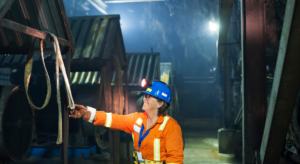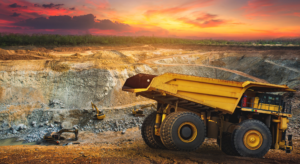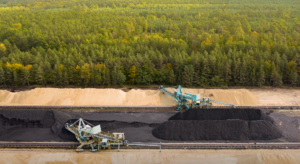The mining industry is one of the most vital sectors of the global economy, responsible for extracting valuable minerals and ores that are used in countless products and technologies. In recent years, the industry has embraced the use of artificial intelligence (AI) to enhance efficiency, safety, and profitability. By leveraging advanced machine learning algorithms and data analysis techniques, mining companies are now able to optimize operations, reduce costs, and improve safety conditions for workers.
The use of AI in mining has revolutionized the way that companies approach everything from exploration and extraction to processing and transportation. This technology has made it possible to gather and analyze vast amounts of data in real time, allowing for faster and more accurate decision-making. From autonomous vehicles to predictive maintenance systems, AI has enabled mining companies to increase efficiency and productivity while reducing risk and environmental impact.
In this blog post, we will explore the various ways that AI is being used in the mining industry, the benefits it offers, and the challenges that mining companies face when implementing this technology. We will also examine some of the ethical considerations that arise when using AI in mining, and the potential impact that this technology could have on the future of the industry.
Why is AI needed in the first place?
Artificial intelligence (AI) is needed in mining because it has the potential to address many of the industry’s most pressing challenges. Mining operations are often located in remote and hazardous environments, and worker safety is a top priority. By using AI-powered autonomous vehicles, sensors, and drones, mining companies can reduce the need for human workers to perform dangerous tasks. AI can also help to optimize processes and reduce operational costs by predicting maintenance needs, identifying the best drilling locations, and optimizing ore processing. Furthermore, with the increasing demand for sustainable practices, AI can help mining companies to minimize their environmental impact by identifying areas where resource usage can be optimized and monitoring the impact of mining activities on the environment.
AI in mining currently
One of the most significant applications of AI in mining is the use of autonomous vehicles and equipment, which can operate without human intervention in hazardous and remote environments. AI algorithms are also used to analyze data from sensors and equipment to identify patterns and predict maintenance needs, reducing downtime and costs. Additionally, machine learning algorithms are used to optimize drilling locations, estimate resource reserves, and identify areas where ore processing can be improved. AI-powered drones are also used for mapping and monitoring environmental impact, and enhancing safety by inspecting and monitoring mine sites. Overall, AI is being used in mining to increase efficiency, reduce costs, improve safety, and minimize environmental impact.
Future prospects
The future of AI in mining is exciting and holds significant potential for further advancement. As technology evolves, AI-powered mining equipment and sensors are expected to become even more sophisticated, with increased accuracy and predictive capabilities. For instance, AI could be applied to create more efficient and sustainable mining practices, by optimizing energy consumption and reducing waste generation. Additionally, AI-powered virtual reality technologies could be used to simulate mining scenarios and test new technologies before they are deployed on-site. With the advent of 5G networks, AI-powered devices, and systems are likely to be even more connected, allowing for real-time data analysis and faster decision-making. Furthermore, AI could be used to create more sophisticated predictive maintenance systems, helping to prevent equipment failures and reduce downtime. As mining companies strive to become more sustainable and efficient, the use of AI is expected to play an increasingly important role in the industry’s future.
What the industry should keep in mind
While the use of AI in mining offers many benefits, the industry must also consider certain challenges and ethical considerations. First, there are concerns about the potential job loss for human workers as mining companies increasingly rely on autonomous equipment and vehicles. Therefore, companies must ensure that they implement retraining programs and provide alternative employment opportunities for affected workers. Second, the use of AI in mining can raise ethical concerns regarding data privacy and security. Companies must ensure that they have strong data protection measures in place and that they are transparent in their use of AI. Finally, there is a need for collaboration and knowledge-sharing across the industry to develop best practices and standards for the use of AI in mining. By keeping these challenges and ethical considerations in mind, mining companies can ensure that they use AI in a responsible and sustainable manner that benefits both their businesses and the wider community.
Join key decision-makers at the Efficient Mining Operations Summit in Barcelona, Spain from May 4th to 5th to learn more. Visit future-bridge.eu or mining-events.com and follow us on our social media to keep track of other events about sustainability in the mining and metals industry.





